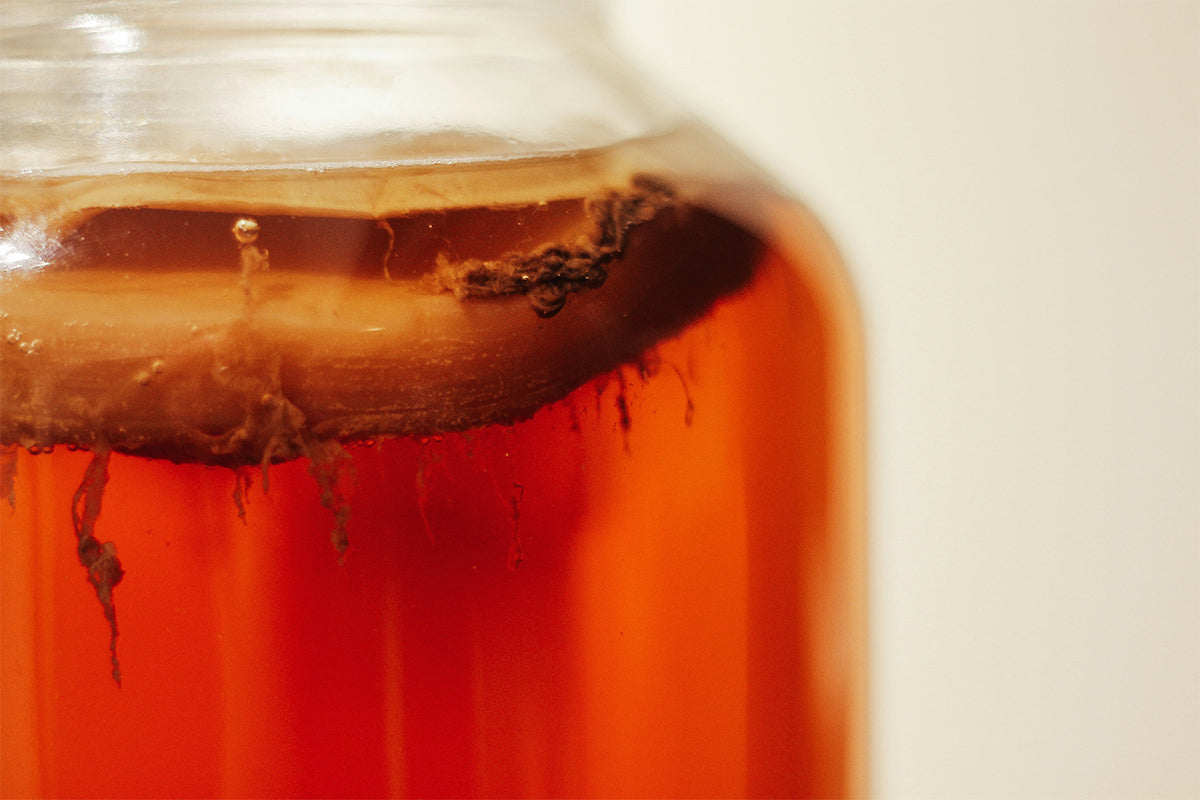
· By Lewis Comber
What is Kombucha & Where Does it Come From?
Have you ever had a sip of a beverage that made you pause, something that tickled your taste buds in a uniquely delightful way? That's Kombucha for you, a concoction that’s far from ordinary and steeped in an intriguing story.
What is the origin of Kombucha?
This special beverage, Kombucha, has a chronicle that goes back millennia. First appearing in East Asia's distant lands, it was esteemed as the 'Immortality Tea'. A tapestry of tea, sugar, and a compelling concoction of microorganisms, endearingly dubbed 'SCOBY' (Symbiotic Culture of Bacteria and Yeasts), form this marvel of a drink.
Let's dig in, shall we?
- Ancient Ties: Kombucha has an impressive backstory, rooted in East Asia, which has journeyed across time and cultures, with each passage adding its unique flair.
- Magical Microorganisms: Kombucha owes its distinct identity to an enthralling mix of living cultures. It's a nod to the intricate world of microorganisms and their harmonious interaction to create a drink that dances on your palate.
- The Fermentation Chronicles: The evolution of Kombucha from simple tea and sugar is thanks to the magic of fermentation. The 'SCOBY' digests the sugar, yielding a cocktail of organic acids, enzymes, and polyphenols.
What is Kombucha, and how is it made?
The charm of Kombucha lies not just in its taste but in the remarkable story of its creation. It's a celebration of the microorganisms, creating a symphony of flavours, making this beverage a star in its own right.
The Kombucha brewing process embarks on a journey of varying degrees of burstiness. It commences with a pot of loose-leaf tea, intertwining its essence with sugar and a harmonious blend of yeast and bacteria. This intricate concoction is then surrendered to the whims of time, fermenting and evolving over the course of several weeks. Within this realm of metamorphosis, the capricious interplay of yeast and bacteria takes charge, merrily fermenting the sugar and utilising the tea as a nourishing drink rich in nitrogen, tannins and antioxidants.
The fermentation process breaks down natural sugars and a captivating transformation transpires, developing a taste that is truly unparalleled and unique. During this process, a small amount of alcohol is produced as a by-product, which is produced by the yeasts just like in beer or wine.
Now, the question of the hour: 'Is Kombucha alcoholic?' As fermentation can produce alcohol, Kombucha might contain trace amounts, usually less than 0.5%. This keeps it within the legal confines of non-alcoholic beverages in many countries, including the UK. However, it can vary based on the brewing and fermentation process. Most of the alcohol is eliminated during the fermentation process because the bacteria ferment the ethanol to acetic acid - a symbiotic relationship.
Some popular questions about Kombucha:
- What teas are used to make Kombucha? Traditional choices are black or green tea, but experimentation can yield a unique bouquet of flavours and characteristics.
- What's the role of 'SCOBY' in Kombucha? The 'SCOBY' is Kombucha's VIP. It gobbles up the sugar, kick-starting fermentation, and imbues the drink with its signature taste and fizz - In short, it’s the living culture that sits on the top of the tea which helps to ferment the drink.
- Who can enjoy Kombucha? Most people can partake in the joy of Kombucha, but moderation is key. Newbies should start slow, as everyone's body reacts differently.

Conclusion
Hopefully, this article has helped you answer the question: What is Kombucha? In essence, Kombucha is more than a drink; it's an odyssey. It’s a complex mix of history, culture, and biology, all intertwined in a fizzy, sweet-tart brew. Its birthplace in East Asia and its special dance with living cultures make it a riveting topic in the beverage universe.
While we can't state any particular health benefits for Kombucha due to EFSA guidelines, its unique recipe and brewing journey make it a subject worth pondering over. Any process that involves such harmonious teamwork of microorganisms is surely deserving of our fascination. So, whenever you're sipping on your Kombucha, remember to appreciate the fascinating biology and history that's bubbling in your glass! Enjoy responsibly and savour each sip!
At Hip Pop we make our kombucha in the traditional way, plus we are one of the only kombucha brands in the world that harnesses a bacteria called Bacillus Coagulans which has undergone rigorous scientific studies. You get these live, active cultures added to every can PLUS all the yet unknown benefits of fermented kombucha with all its other wonderful properties.




